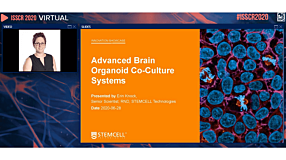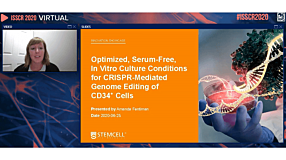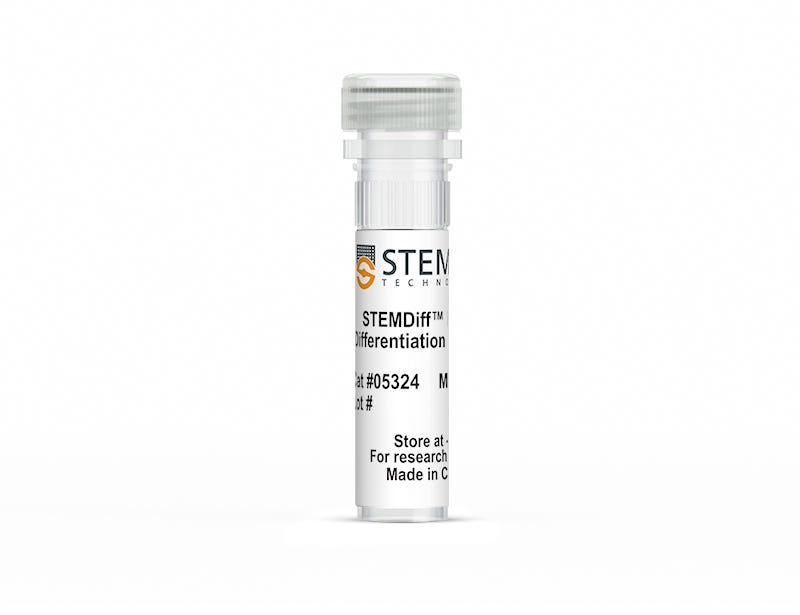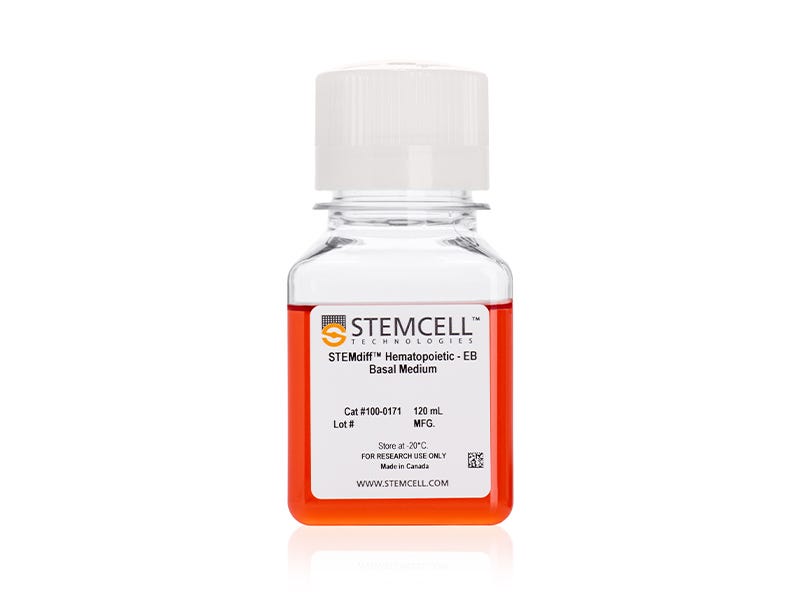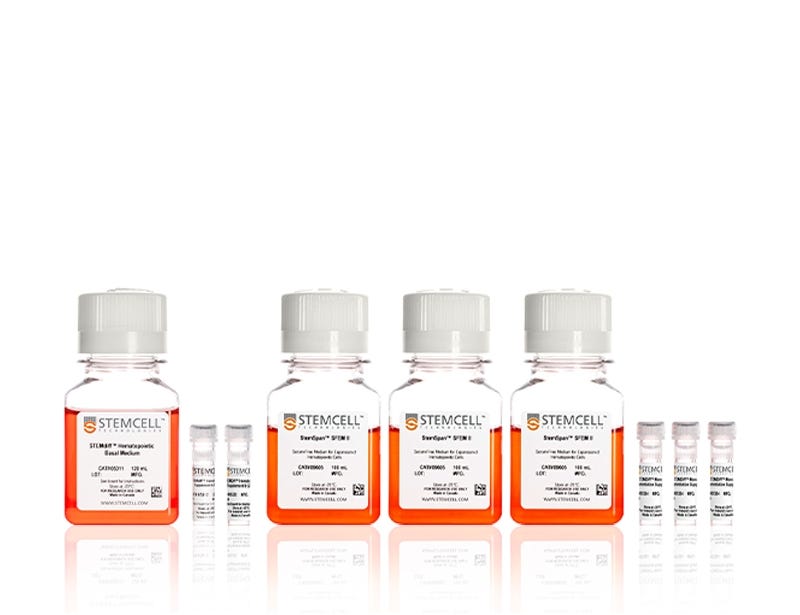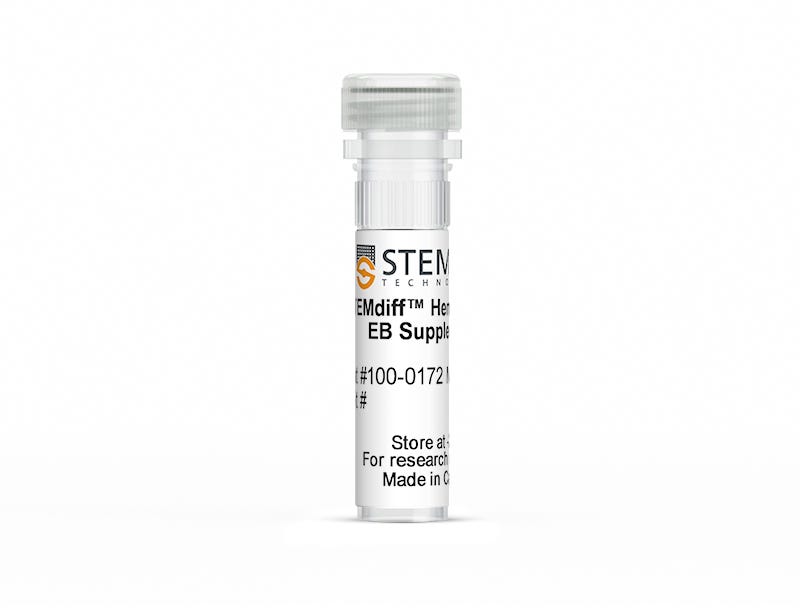ISSCR Innovation Showcase: Differentiating Immune Cells from Human Pluripotent Stem Cells in Feeder- and Serum-Free Cultures
In this Innovation Showcase talk from ISSCR 2020 Virtual, Dr. Nooshin Tabatabaei-Zavareh demonstrates how to differentiate immune cells from human pluripotent stem cells (hPSCs) in feeder- and serum-free cultures.
In this Innovation Showcase talk from ISSCR 2020 Virtual, Dr. Nooshin Tabatabaei-Zavareh demonstrates how to differentiate immune cells from human pluripotent stem cells (hPSCs) in feeder- and serum-free cultures.
hPSCs may provide an unlimited source of immune cells for disease modeling, gene editing, and cell therapy development applications. Differentiation of hPSCs into immune cells is challenging and often involves the use of serum and feeder cells, which can be difficult to standardize. Dr. Tabatabaei-Zavareh reviews the development of multi-step feeder- and serum-free culture systems for differentiating hPSCs into T cells, NK cells, or monocytes, which are similar to their counterparts in peripheral blood. Her results show that hPSCs can be differentiated under feeder- and serum-free conditions into immune cells for basic and translational research.
As a supporter of, and participant in, ISSCR’s 2020 Annual Meeting, we share with you our Innovation Showcase presentation at #ISSCR2020.
This presentation does not represent an endorsement from or support of the ISSCR.
hPSCs may provide an unlimited source of immune cells for disease modeling, gene editing, and cell therapy development applications. Differentiation of hPSCs into immune cells is challenging and often involves the use of serum and feeder cells, which can be difficult to standardize. Dr. Tabatabaei-Zavareh reviews the development of multi-step feeder- and serum-free culture systems for differentiating hPSCs into T cells, NK cells, or monocytes, which are similar to their counterparts in peripheral blood. Her results show that hPSCs can be differentiated under feeder- and serum-free conditions into immune cells for basic and translational research.
As a supporter of, and participant in, ISSCR’s 2020 Annual Meeting, we share with you our Innovation Showcase presentation at #ISSCR2020.
This presentation does not represent an endorsement from or support of the ISSCR.
Publish Date:
August 17, 2020
Request Pricing
Thank you for your interest in this product. Please provide us with your contact information and your local representative will contact you with a customized quote. Where appropriate, they can also assist you with a(n):
Estimated delivery time for your area
Product sample or exclusive offer
In-lab demonstration
By submitting this form, you are providing your consent to STEMCELL Technologies Canada Inc. and its subsidiaries and affiliates (“STEMCELL”) to collect and use your information, and send you newsletters and emails in accordance with our privacy policy. Please contact us with any questions that you may have. You can unsubscribe or change your email preferences at any time.

